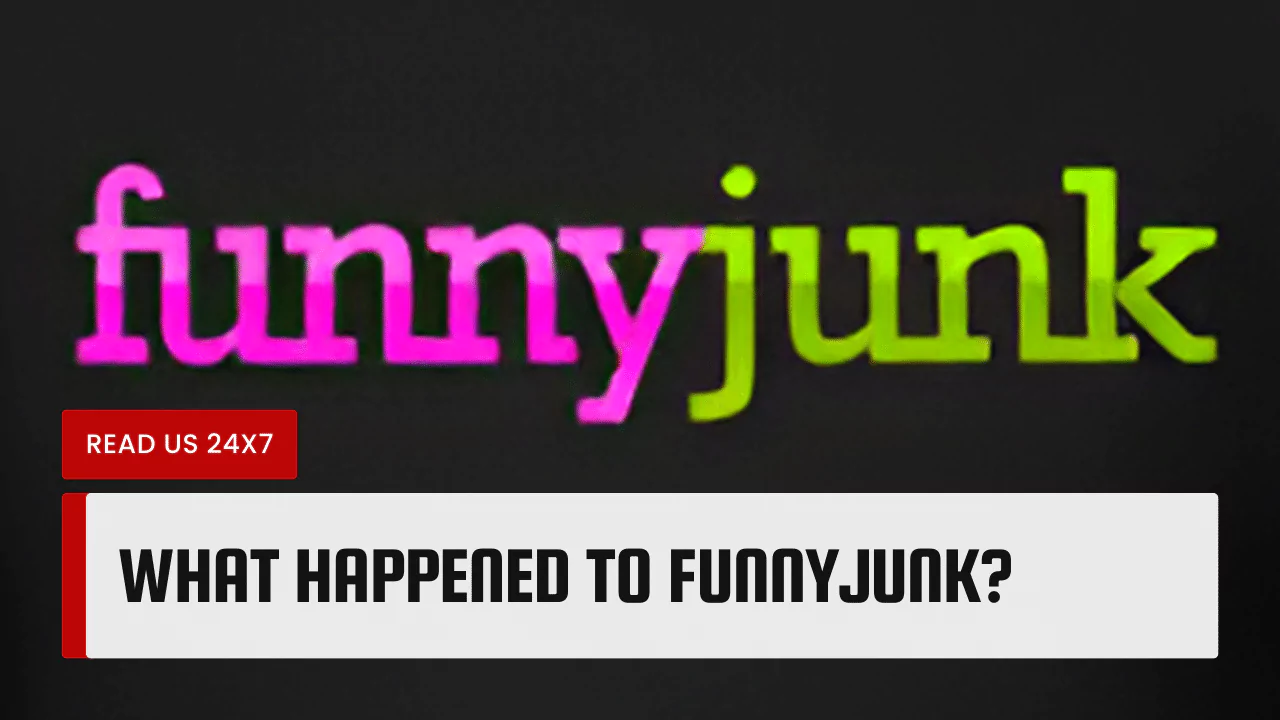Funnyjunk was a content aggregator website that allowed users to upload and share humorous images, videos, and memes from various sources. It was popular for its features such as advice animals and rage comics, but it also faced several controversies and legal disputes over its alleged copyright infringement and defamation of other content creators. The most notable case was with The Oatmeal, a webcomic by Matthew Inman, which resulted in a viral fundraiser and a lawsuit. Funnyjunk eventually lost its traffic and user engagement and became irrelevant in the online humor scene.
The History and Features of Funnyjunk
Funnyjunk was created in 2001 by an unknown party, and was later administered by a user known only as “Admin”. The website allowed users with registered accounts to post pictures, videos, animated GIFs, text, and links that they found funny or amusing. The posts could be thumbed up or down by other users, and the top-voted content was featured on the front page. Funnyjunk also had an image macro generator and a comic creator that enabled users to create their own memes and rage comics.
Funnyjunk’s content was mainly derived from other websites, such as 4chan, Newgrounds, Reddit, SomethingAwful, FunnyJunk, YTMND, Instagram, and others. Some of the content was originally created by Funnyjunk users, while some was copied or stolen without credit or permission from the original sources. Funnyjunk’s users were known for their immature and offensive humor, as well as their trolling and spamming of other websites and individuals.
The Controversy Surrounding Funnyjunk
Funnyjunk’s practice of hosting uncredited and unauthorized content from other websites led to several accusations and complaints of copyright infringement. In 2010, Matthew Inman, the creator of The Oatmeal, a webcomic that features sarcastic and witty humor, discovered that Funnyjunk was distributing copies of his comics without his permission. He sent e-mails to Funnyjunk, requesting the removal of his comics, but only some of them were taken down. He then wrote a blog post on his website, criticizing Funnyjunk for its content theft and poor quality.
In 2011, Funnyjunk’s Admin responded to Inman’s blog post by sending a message to all Funnyjunk users, claiming that The Oatmeal wanted to sue Funnyjunk and shut it down. He also urged the users to contact Inman and harass him on his e-mail and Facebook page. This sparked a flame war between Funnyjunk and The Oatmeal fans, as well as a surge of traffic to both websites.
In 2012, Funnyjunk hired Charles Carreon, a lawyer who had previously represented sex.com, to review its website and handle its legal matters. Carreon sent a letter to Inman, demanding $20,000 in damages for defamation and false advertising, alleging that Inman’s blog post harmed Funnyjunk’s reputation and business.
The Downfall of Funnyjunk
Inman refused to pay the $20,000, and instead published the letter on his website, along with a sarcastic and humorous response. He also announced that he would raise the same amount of money through a charity fundraiser on Indiegogo, and donate it to the American Cancer Society and the National Wildlife Federation. He also promised to send a photo of himself with the money, and a drawing of Funnyjunk’s mother seducing a Kodiak bear, to Funnyjunk.
Inman’s fundraiser, dubbed “Operation BearLove Good, Cancer Bad”, went viral and received widespread media attention and support from celebrities, such as Wil Wheaton and Neil Gaiman. It raised over $200,000 in the first day, and over $220,000 in total. Inman fulfilled his promises and sent the photo and the drawing to Funnyjunk, as well as the donations to the charities.
Carreon, however, was not amused by Inman’s stunt, and filed a lawsuit against him, Indiegogo, the two charities, and a hundred anonymous internet users, for various allegations related to the fundraiser and the online backlash he received. He also tried to obtain a temporary restraining order to stop the transfer of the money but failed. He later dropped the lawsuit, after facing criticism and mockery from the internet community, as well as legal challenges from the Electronic Frontier Foundation and the California Attorney General.
The legal dispute between Funnyjunk and The Oatmeal had a negative impact on Funnyjunk’s traffic and popularity. According to Alexa, Funnyjunk’s global rank dropped from 2,933 in June 2012 to 10,000 in June 2013, and to 20,000 in June 2014. Funnyjunk also removed most of the stolen content from its website and lost its user engagement and loyalty. Funnyjunk became irrelevant in the online humor scene and was overshadowed by other websites, such as 9gag, Imgur, and Reddit.
The Oatmeal and Funnyjunk Legal Dispute
One of the 2010s’ most contentious internet culture and law disputes was The Oatmeal and Funnyjunk. Intellectual property, fair use, free expression, defamation, cyberbullying, online fundraising, and vigilantism were implicated. The power of social media and viral marketing, as well as internet users’ comedy and ingenuity, were shown. Traditional and internet media covered the debate, which some saw as a major win for online content creators and a loss for content thieves.
The parties were also affected by the disagreement. Inman kept publishing webcomics on The Oatmeal and working on card games, novels, and animated series. Philanthropy and activism increased, and he backed wildlife conservation, net neutrality, and crowdfunding. In contrast, Carreon was sued by an anonymous blogger who parodied him. Memes and mocking surrounded him, and Mashable called him the first “silliest tech lawsuits ever.”
A landmark internet culture and law case was the Oatmeal-Funnyjunk lawsuit. It showed how two types of websites and communities interact and their results. It addressed the importance and problems of safeguarding and honoring online material and creators and internet users’ and platforms’ roles and responsibilities.


